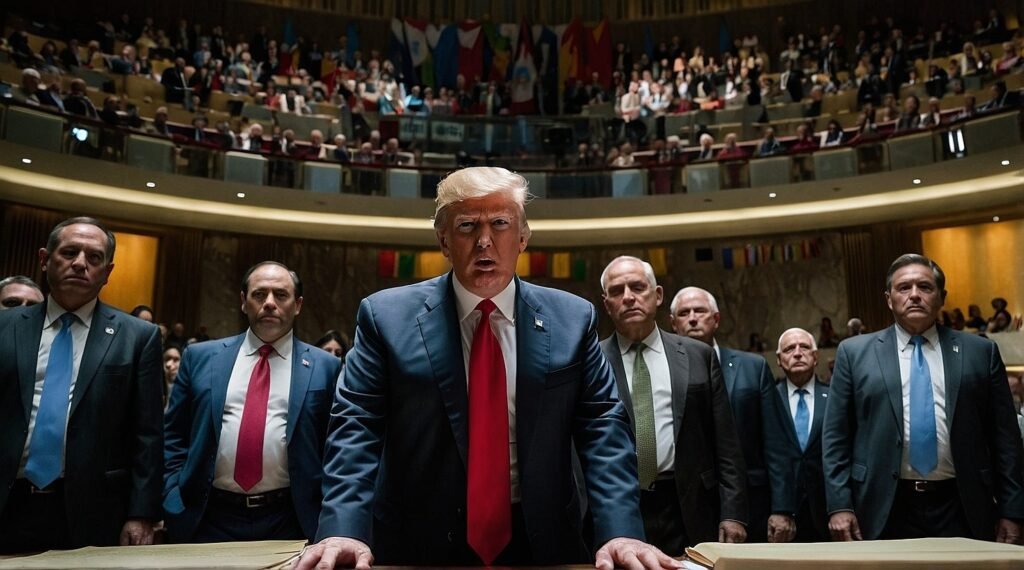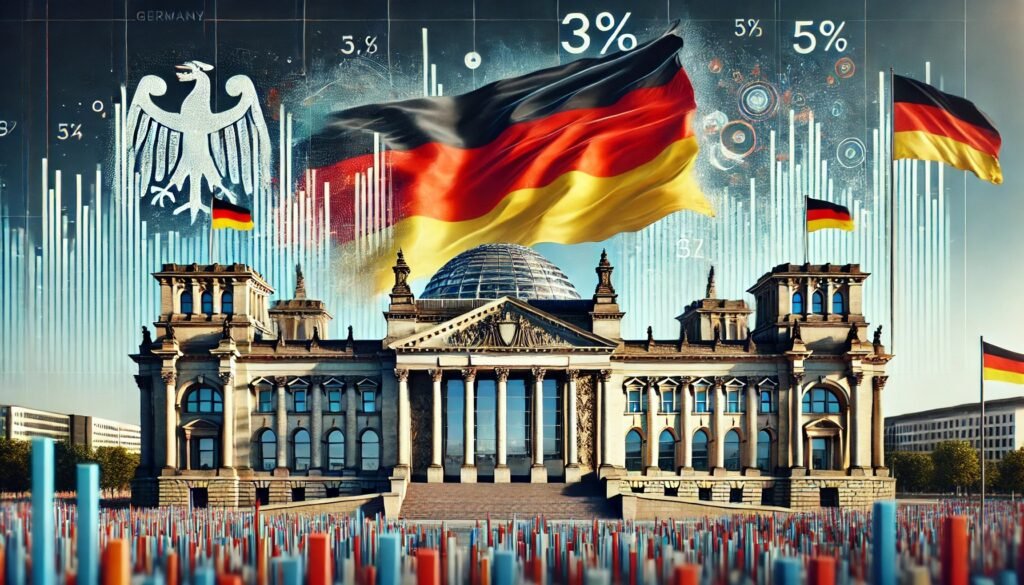|
Getting your Trinity Audio player ready...
|
The 2025 German federal election has marked a seismic shift in the country’s political landscape, with the CDU/CSU (Union) securing the largest share of votes but facing significant challenges in forming a stable government. The rise of the far-right AfD (Alternative for Germany), the declining influence of the SPD (Social Democratic Party), and regional disparities between East and West Germany have set the stage for a complex political future. This election has recorded historical highs and lows, shaping Germany’s governance for years to come.
A historical voter turnout of 82.5% was recorded, reflecting the intensity and significance of this election (Source: ARD 1).
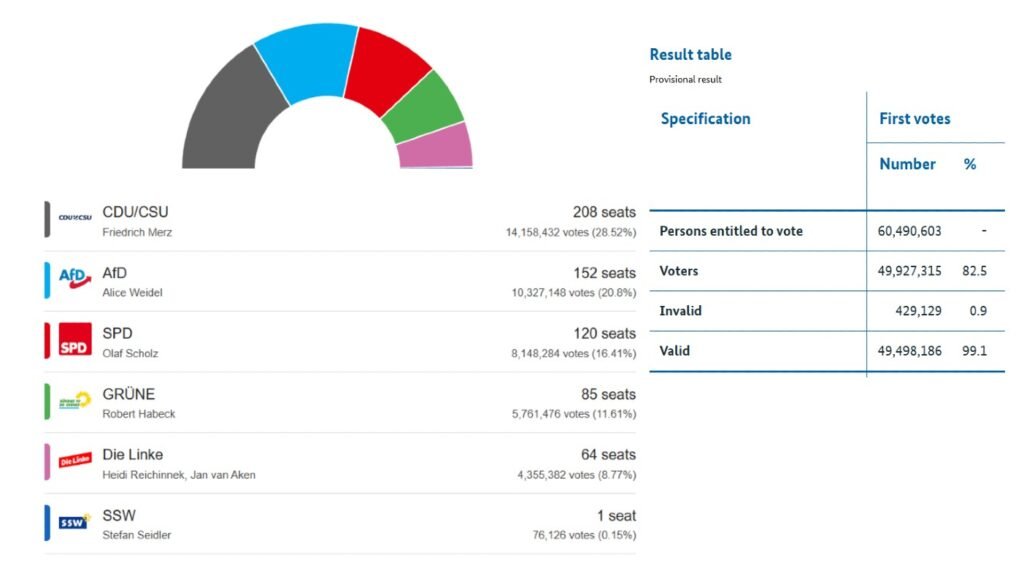
CDU/CSU Wins, but Faces Challenges in Governing
The CDU/CSU (Union) emerged as the largest political force in Germany, winning 208 seats with 28.52% of the vote. This result reflects a conservative resurgence after years of fragmentation within the party. However, despite their lead, the Union lacks an outright majority, requiring a coalition to govern effectively. Analysts have pointed to lingering conflicts within the CDU and its Bavarian sister party CSU, which could hinder smooth governance.
According to a post-election survey, 52% of voters believe CDU/CSU’s internal conflicts will pose significant challenges to forming a stable government.
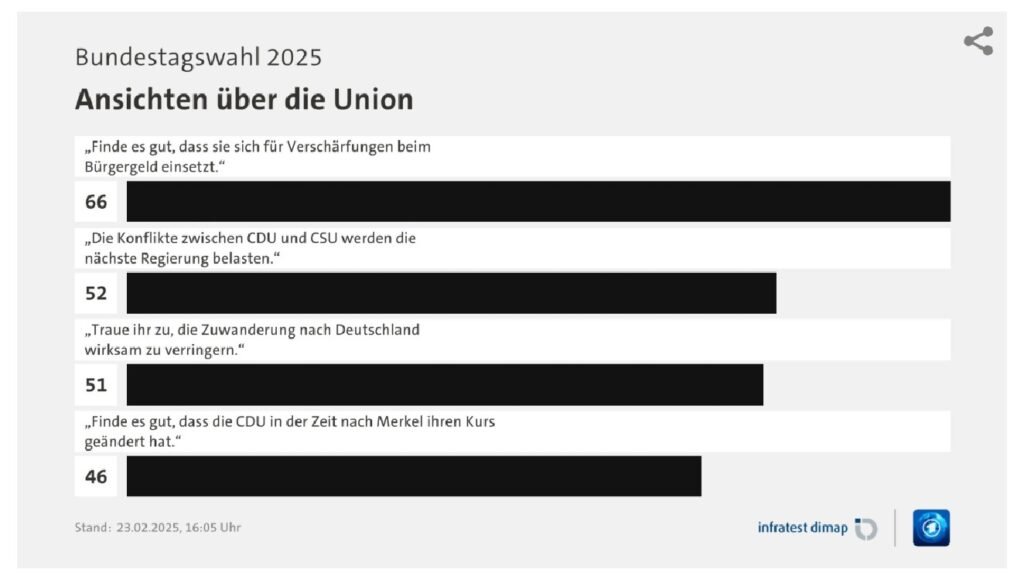
AfD’s Surprising Surge and Eastern Germany’s Shift
The AfD (Alternative for Germany) delivered a historic performance, securing 20.80% of the vote and 152 seats—a significant leap from previous elections. This surge highlights a growing discontent among voters, particularly in Eastern Germany, where AfD dominated several constituencies.
However, the party remains highly controversial. A recent survey found that 74% of respondents believe the AfD has failed to distance itself from far-right extremism, while 65% fear that the party poses a threat to democracy.
Despite this, the AfD has managed to tap into public concerns about immigration (19% of voters in East Germany cited it as their top issue) and internal security (16%). Their gains underline a growing polarization in German politics, with regional disparities widening.
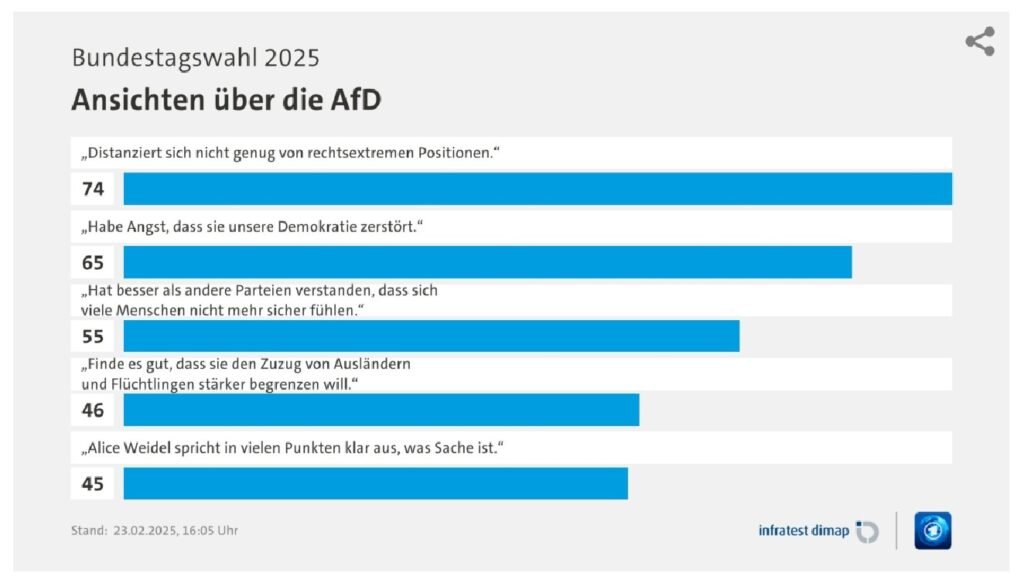
SPD’s Decline: End of an Era?
For the SPD (Social Democratic Party), the election results were disastrous, marking one of their worst performances in modern history. The party received only 16.41% of the vote and 120 seats, reflecting widespread disillusionment with its leadership and policies.
Polling data suggests that voters believe the SPD prioritized welfare recipients over working-class citizens (55%) and has lost touch with its traditional labor base (52%). Additionally, 53% of respondents think the SPD should move into opposition, signaling a broader demand for leadership renewal.

Green Party and The Left Face Setbacks
The Greens (Bündnis 90/Die Grünen) secured 11.61% of the vote (85 seats), a noticeable drop from their previous high in 2021. Many voters cited economic concerns and climate policy fatigue as reasons for their shift away from the Greens.
Meanwhile, Die Linke (The Left) struggled, garnering only 8.77% of the vote (64 seats). The party’s continued decline reflects a diminishing influence among its traditional working-class supporters, many of whom have defected to AfD or SPD.
Regional Key Issues Driving Voter Decisions
The election underscored stark regional divides in voter priorities, highlighting the distinct political preferences between different regions of Germany:
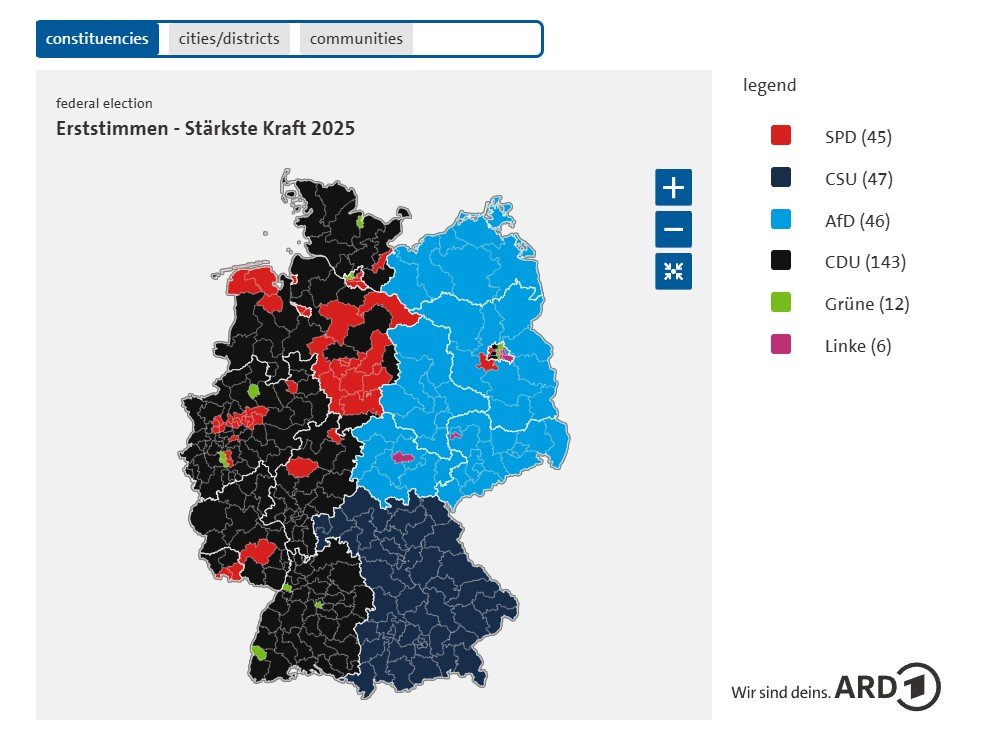
- West Germany: Social security (19%), internal security (19%), economic growth (15%), and climate policy (13%) were the dominant concerns. The CDU/CSU remained strong, securing victories in many rural and suburban districts, while SPD retained influence in some industrialized areas. However, SPD’s traditional strongholds, such as the Ruhr region, saw further erosion as conservative and far-right parties made inroads.
- East Germany: Immigration (19%), peace/security (17%), and economic growth (16%) emerged as the top concerns. The AfD secured significant gains, winning numerous direct mandates, especially in Saxony, Brandenburg, and Thuringia, where dissatisfaction with Berlin’s policies has been particularly pronounced. A survey indicated that 43% of Eastern voters feel underrepresented in national politics, fueling the populist surge. Meanwhile, Die Linke, once dominant in the region, suffered historic losses, continuing its downward trajectory from previous elections.
- Urban vs. Rural Divide: Progressive parties, including the Greens and SPD, performed relatively well in Berlin, Hamburg, and Frankfurt, where social justice and environmental policies resonate with voters. However, rural areas leaned decisively towards CDU/CSU and AfD, reflecting growing skepticism towards liberal policies, particularly on migration and climate regulations. A growing “East-West polarization” is evident, with AfD’s strongest districts aligning with economically struggling regions.
These regional disparities indicate a deepening divide in German political dynamics, shaping potential coalition agreements and future policy directions.
Coalition Talks: A Political Puzzle
With 316 seats required for a majority in the Bundestag, coalition negotiations have become the most critical and contentious aspect of the post-election landscape. The most viable coalition options include:
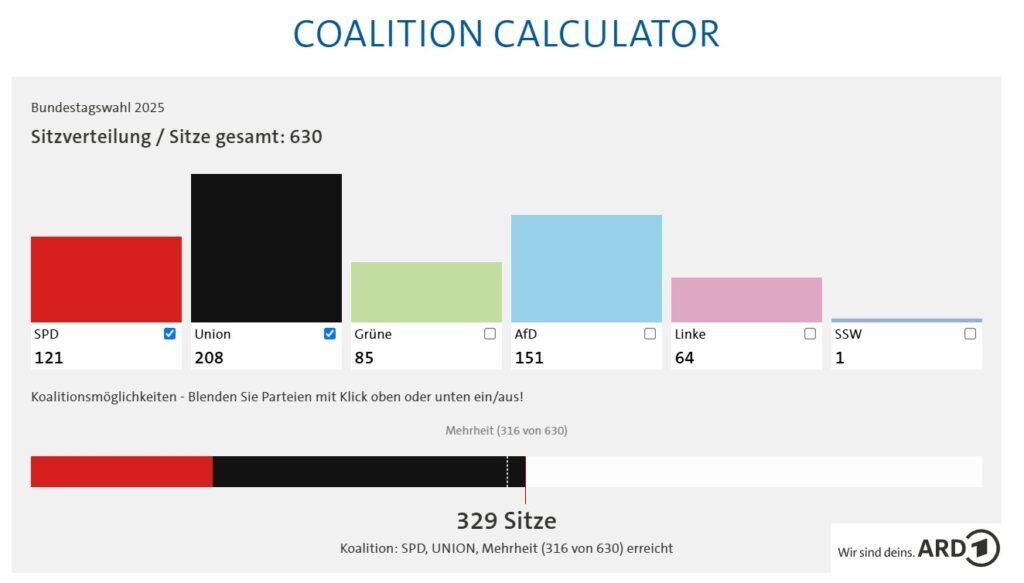
- CDU/CSU + SPD: 329 seats (Majority reached)
- CDU/CSU + Greens: 293 seats (Falling short)
- SPD + Greens + Left: 269 seats (Not enough for a government)
Given the political dynamics, a CDU-SPD “Grand Coalition” appears the most likely outcome, despite internal party resistance on both sides.
What’s Next for Germany?
The 2025 election results signal a historic realignment in German politics, with rising populism, weakening traditional parties, and deepening regional divides. The weeks ahead will be pivotal as coalition negotiations unfold, shaping Germany’s domestic and foreign policies in the coming years.
What are your thoughts on the 2025 German elections? Leave a comment and let us know! Stay tuned for our daily updates as we continue covering this developing story.





